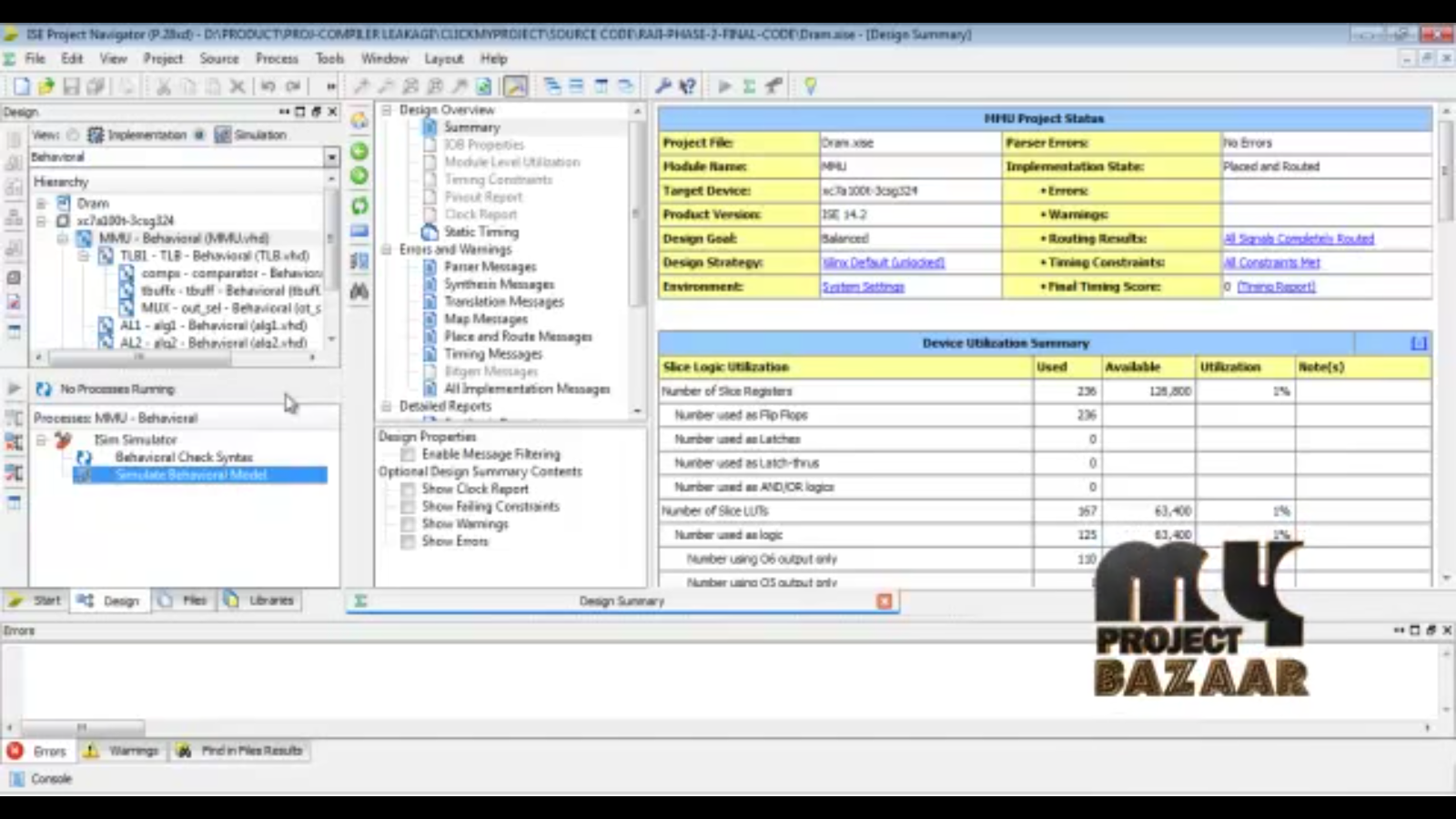
Compiler-Assisted Leakage- and Temperature- Aware Instruction-Level VLIW Scheduling
Product Description
Abstract—With technology scaled to nanometer-scale, leakage energy consumption is accounting for a greater proportion than ever, especially for very long instruction word (VLIW) architectures with a large number of functional units (FUs). The growing energy consumption leads to an increase in chip temperature, which again brings an exponential growth in leakage current, and consequently leakage energy. However, < Final Year Projects > few studies consider both leakage energy and temperature reduction during the compiling on VLIW architectures. In this paper, a leakage- and temperature-aware design flow is presented to assist the compiling of instruction-level VLIW scheduling. And two scheduling algorithms are proposed for the design flow. First, the leakage-aware rescheduling algorithm is proposed for leakage energy reduction by concentrating operations to fewer FUs and shutting more FUs down. Then, the temperature-aware workload balance algorithm is presented to reduce peak temperature by balancing the concentrated workloads among homogenous FUs. It is proved that the proposed two algorithms can reduce the leakage energy and peak temperature without performance loss. Experimental results demonstrate that the peak temperature is reduced by 15.27% and 12.84% for FU groups with three and two FUs and the leakage energy is reduced by 78.14% and 30.31% on average compared with the communication scheduling and list algorithm, respectively.
Including Packages
Our Specialization
Support Service
Statistical Report

satisfied customers
3,589
Freelance projects
983
sales on Site
11,021
developers
175+Would you like to submit yours?

















There are no reviews yet